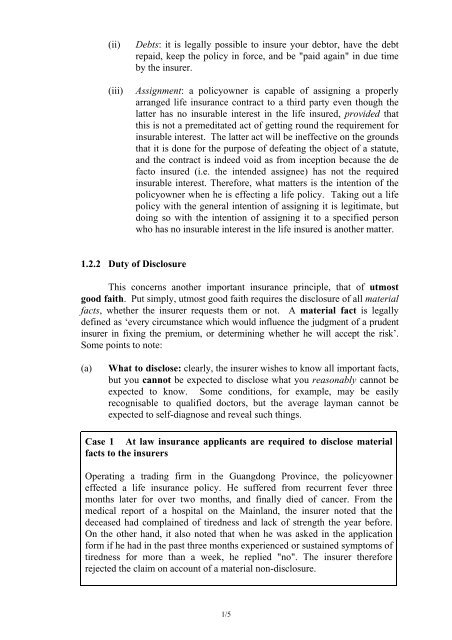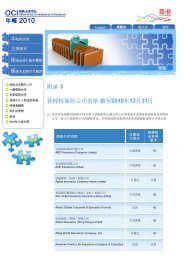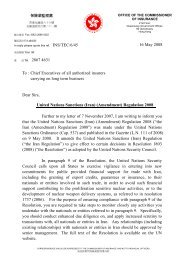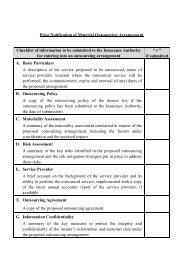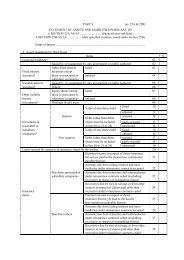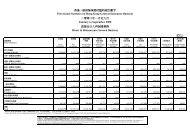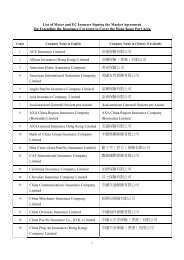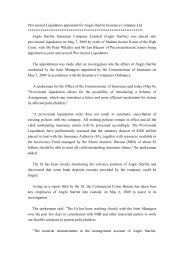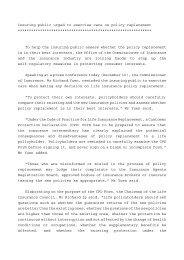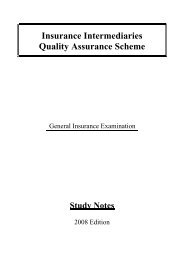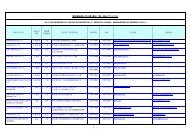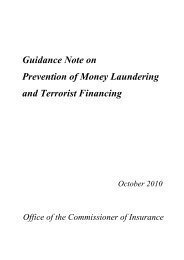Study Notes for the Long Term Insurance Examination (2011 Edition)
Study Notes for the Long Term Insurance Examination (2011 Edition)
Study Notes for the Long Term Insurance Examination (2011 Edition)
You also want an ePaper? Increase the reach of your titles
YUMPU automatically turns print PDFs into web optimized ePapers that Google loves.
(ii)(iii)Debts: it is legally possible to insure your debtor, have <strong>the</strong> debtrepaid, keep <strong>the</strong> policy in <strong>for</strong>ce, and be "paid again" in due timeby <strong>the</strong> insurer.Assignment: a policyowner is capable of assigning a properlyarranged life insurance contract to a third party even though <strong>the</strong>latter has no insurable interest in <strong>the</strong> life insured, provided thatthis is not a premeditated act of getting round <strong>the</strong> requirement <strong>for</strong>insurable interest. The latter act will be ineffective on <strong>the</strong> groundsthat it is done <strong>for</strong> <strong>the</strong> purpose of defeating <strong>the</strong> object of a statute,and <strong>the</strong> contract is indeed void as from inception because <strong>the</strong> defacto insured (i.e. <strong>the</strong> intended assignee) has not <strong>the</strong> requiredinsurable interest. There<strong>for</strong>e, what matters is <strong>the</strong> intention of <strong>the</strong>policyowner when he is effecting a life policy. Taking out a lifepolicy with <strong>the</strong> general intention of assigning it is legitimate, butdoing so with <strong>the</strong> intention of assigning it to a specified personwho has no insurable interest in <strong>the</strong> life insured is ano<strong>the</strong>r matter.1.2.2 Duty of DisclosureThis concerns ano<strong>the</strong>r important insurance principle, that of utmostgood faith. Put simply, utmost good faith requires <strong>the</strong> disclosure of all materialfacts, whe<strong>the</strong>r <strong>the</strong> insurer requests <strong>the</strong>m or not. A material fact is legallydefined as ‘every circumstance which would influence <strong>the</strong> judgment of a prudentinsurer in fixing <strong>the</strong> premium, or determining whe<strong>the</strong>r he will accept <strong>the</strong> risk’.Some points to note:(a)What to disclose: clearly, <strong>the</strong> insurer wishes to know all important facts,but you cannot be expected to disclose what you reasonably cannot beexpected to know. Some conditions, <strong>for</strong> example, may be easilyrecognisable to qualified doctors, but <strong>the</strong> average layman cannot beexpected to self-diagnose and reveal such things.Case 1 At law insurance applicants are required to disclose materialfacts to <strong>the</strong> insurersOperating a trading firm in <strong>the</strong> Guangdong Province, <strong>the</strong> policyownereffected a life insurance policy. He suffered from recurrent fever threemonths later <strong>for</strong> over two months, and finally died of cancer. From <strong>the</strong>medical report of a hospital on <strong>the</strong> Mainland, <strong>the</strong> insurer noted that <strong>the</strong>deceased had complained of tiredness and lack of strength <strong>the</strong> year be<strong>for</strong>e.On <strong>the</strong> o<strong>the</strong>r hand, it also noted that when he was asked in <strong>the</strong> application<strong>for</strong>m if he had in <strong>the</strong> past three months experienced or sustained symptoms oftiredness <strong>for</strong> more than a week, he replied "no". The insurer <strong>the</strong>re<strong>for</strong>erejected <strong>the</strong> claim on account of a material non-disclosure.1/5


